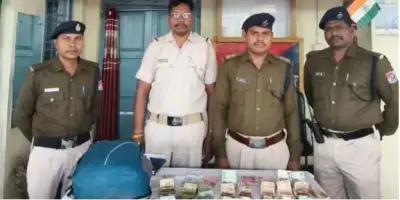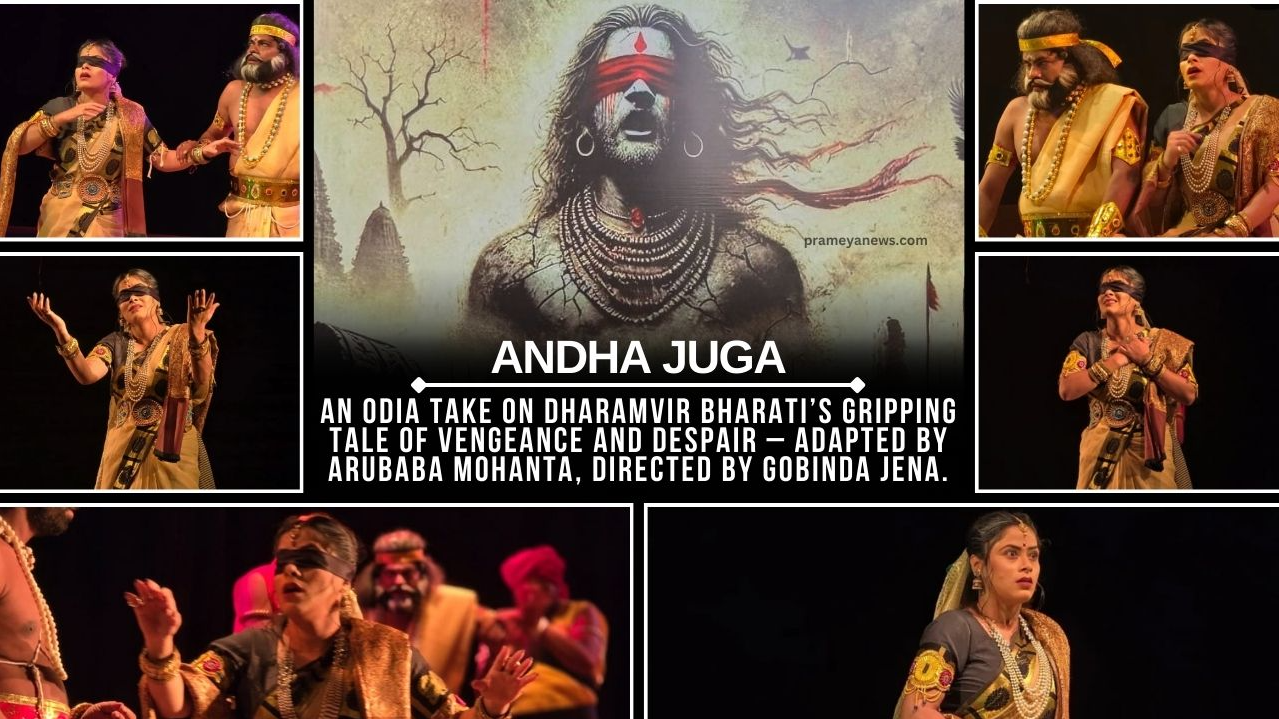

"Andha Juga" – War and Its Aftermath
Dharamvir Bharati's powerful play "Andha Juga" (The Blind Age), adapted into Odia by Arubaba Mohanta and directed by Gobinda Jena, explores into the immediate aftermath and profound consequences of the devastating Mahabharata war. Far more than a simple retelling of an ancient epic, the play serves as a stark and timeless exploration of the corrosive cost of hatred, the blinding nature of vengeance, and the catastrophic outcomes when humanity loses its moral compass. Its message resonates deeply, extending beyond mythological confines to reflect contemporary societal struggles.
The Wasteland of War
The drama unfolds on the final day of the great war. The battlefield of Kurukshetra lies drenched in blood, littered with the dead. Victory has been achieved, but the price is immeasurable. The Kaurava dynasty is decimated. The Pandavas, though declared victors, are broken by grief and despair, their triumph hollow. Amidst this desolation, pivotal characters like Ashwatthama, the blind king Dhritarashtra, his anguished wife Gandhari, the conflicted Yuyutsu, the narrator Sanjaya, and the divine Krishna grapple with their roles in the disaster and the moral ambiguities of the conflict.
Vengeance and Curses
Consumed by a burning desire for revenge, Ashwatthama unleashes the ultimate weapon, the Brahmastra, aiming to extinguish the future of the Pandava lineage by killing the unborn heir in Uttara's womb. This act highlights the horrifying depths of retaliatory violence. Gandhari, devastated by the loss of her sons and witnessing the horrific consequences of the war, holds Krishna responsible for the carnage and unleashes a powerful curse upon him. Krishna, the divine guide, accepts the curse with equanimity, acknowledging the end of an era and the inevitable consequences of the choices made.
The characters in "Andha Juga" transcend their epic origins, serving as potent symbol for contemporary human dilemmas. They reflect the struggles with moral decay, the burden of past actions, and the search for meaning in the face of overwhelming destruction. The play compels audiences to confront uncomfortable truths about violence, the cyclical nature of revenge, and the potential for blindness – both literal and metaphorical – to lead nations and individuals towards ruin. Gobinda Jena's direction brought Arubaba Mohanta's Odia adaptation of Bharati's verse drama to life, was staged at Rabindra Mandap on May 3rd, 2025, with a talented cast including Biswa Ranjan Mohapatra, Prashant Mohapatra, Susant Satapathy, and others, supported by evocative lighting (Prof. Satyabrata Rout) and music (Shakti Prasad Mishra).
After Thought
"Andha Juga" remains a profoundly relevant work, forcing a critical examination of the aftermath of conflict and the psychological scars left on both victors and vanquished. It stands as a powerful warning, illustrating how unchecked hatred and the pursuit of vengeance can obliterate not just lives and dynasties, but the very essence of humanity, ushering in an age of blindness and despair. Its exploration of moral responsibility and the consequences of violence continue to echo in today's world. Can we stop it? Visualise Indo – Pak War